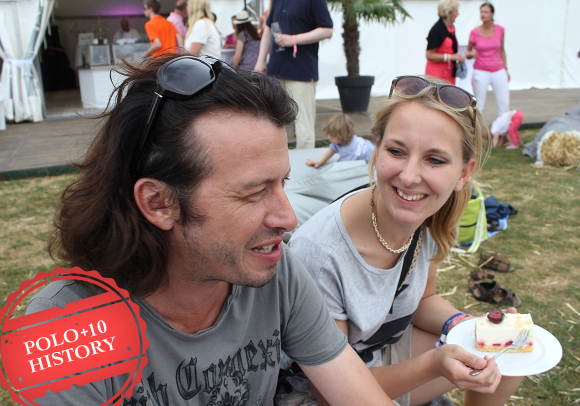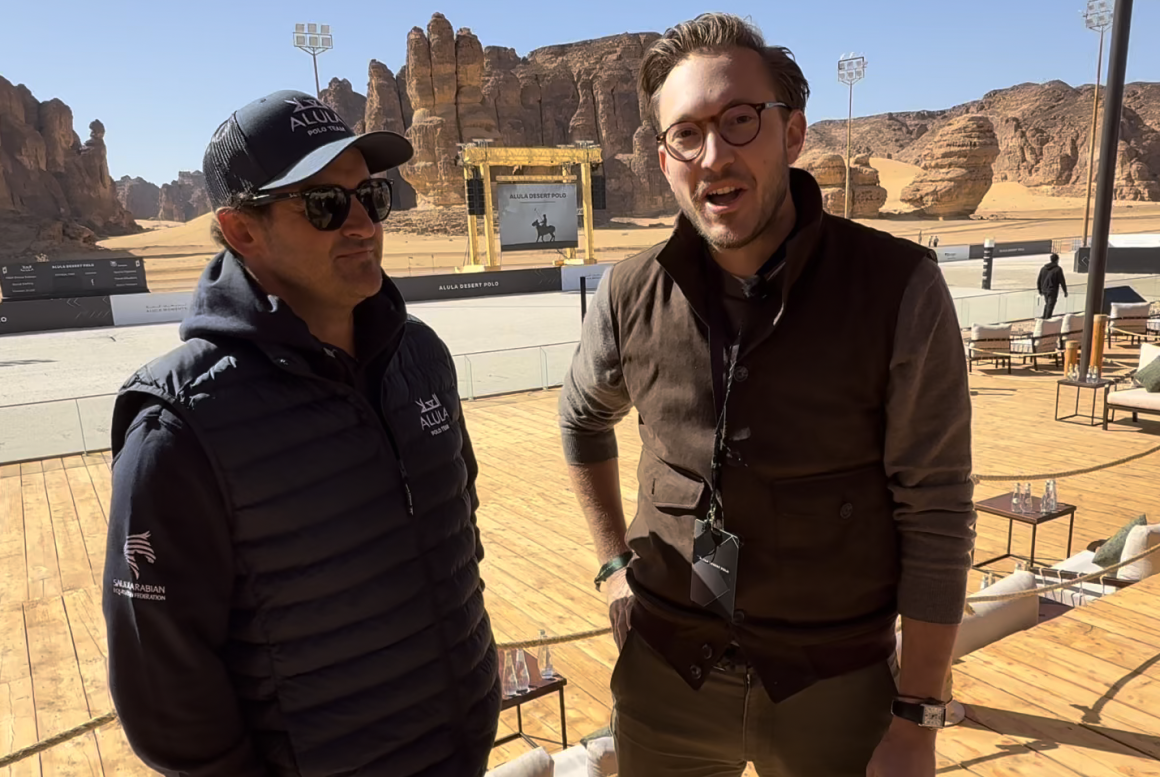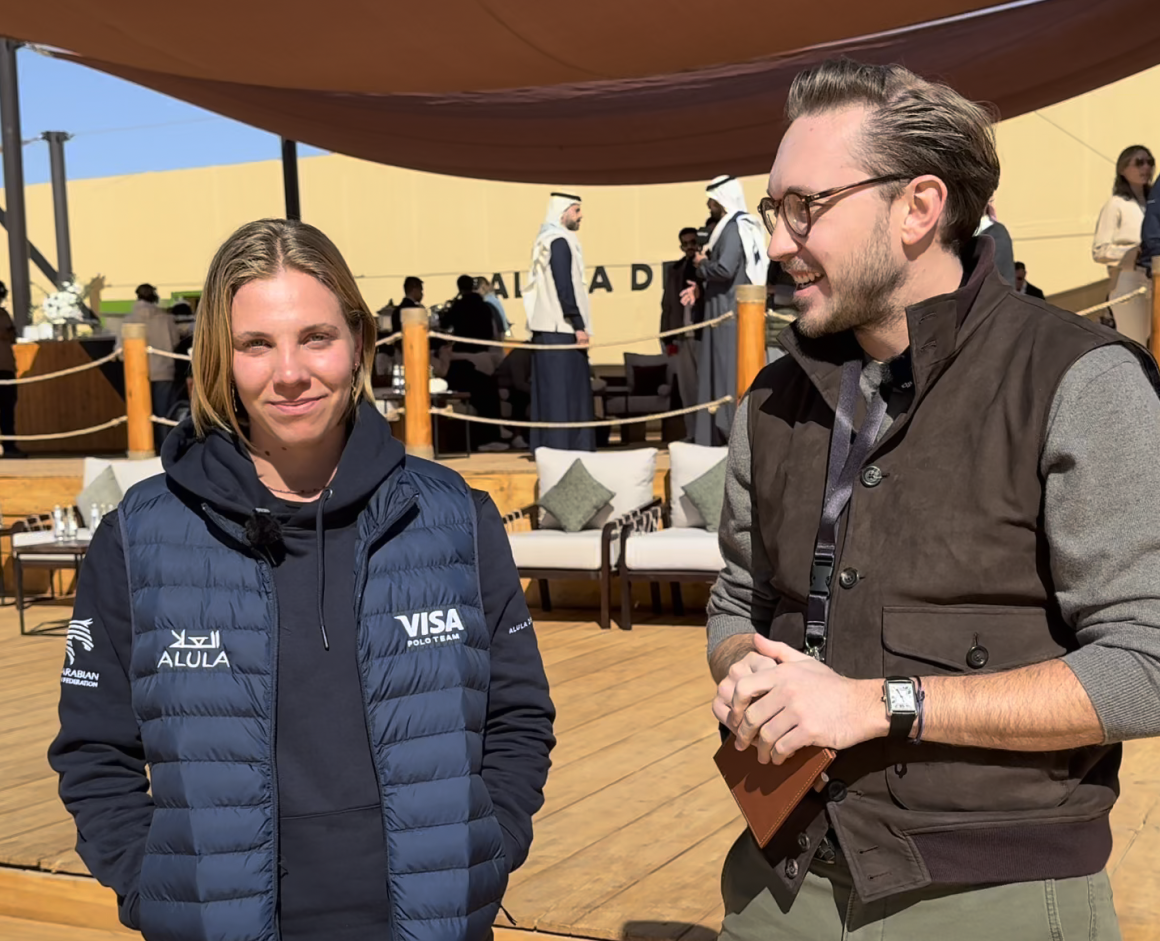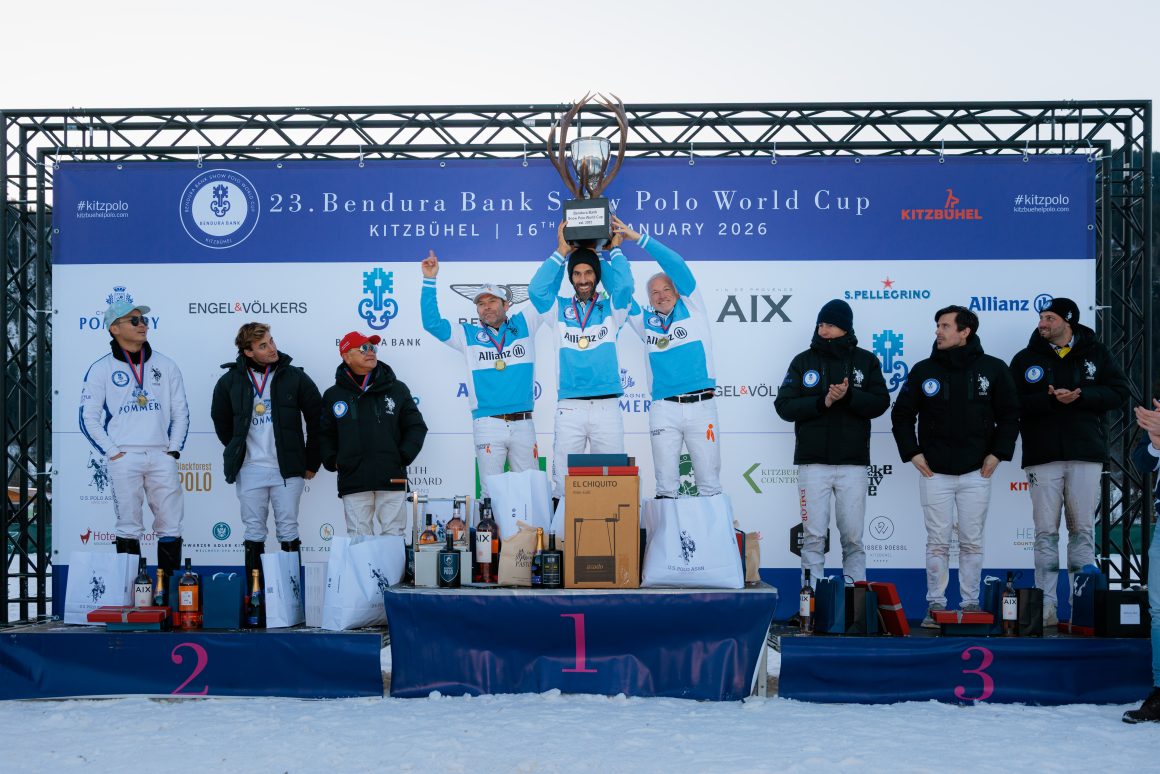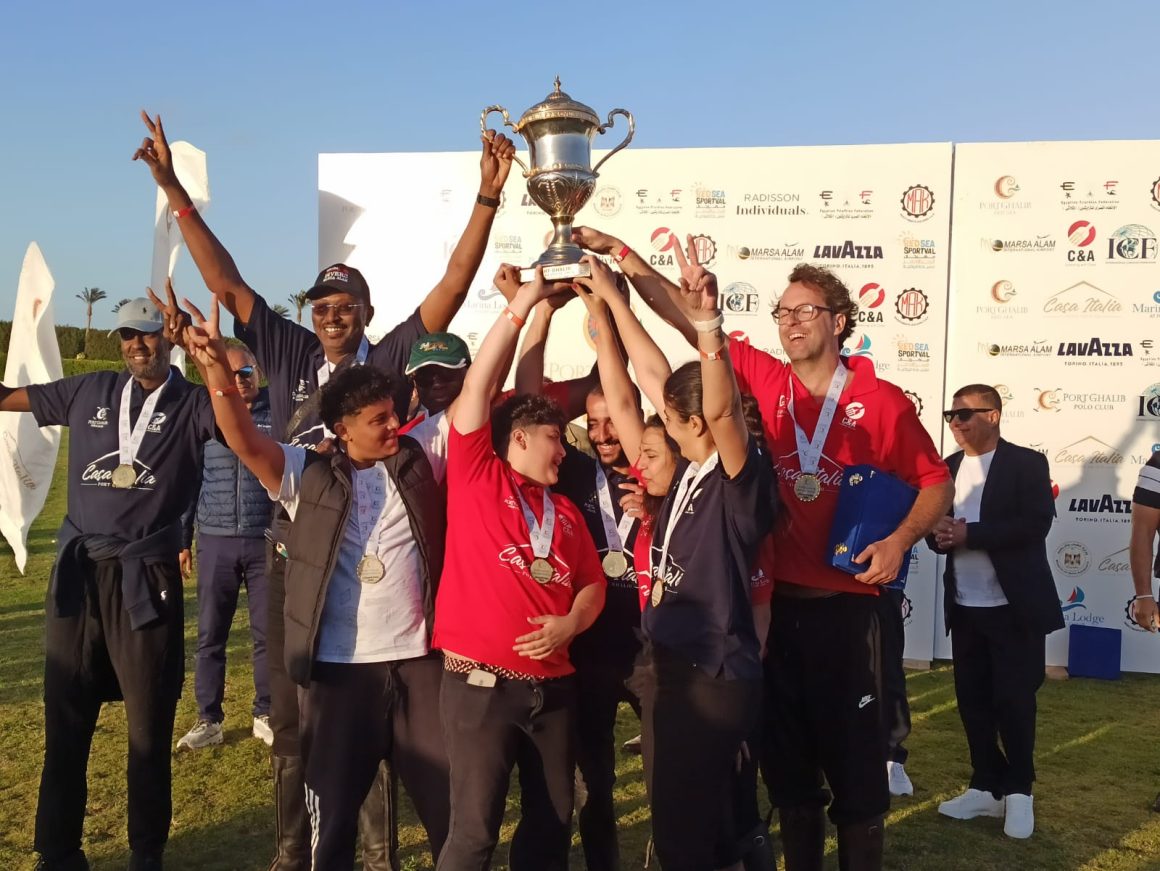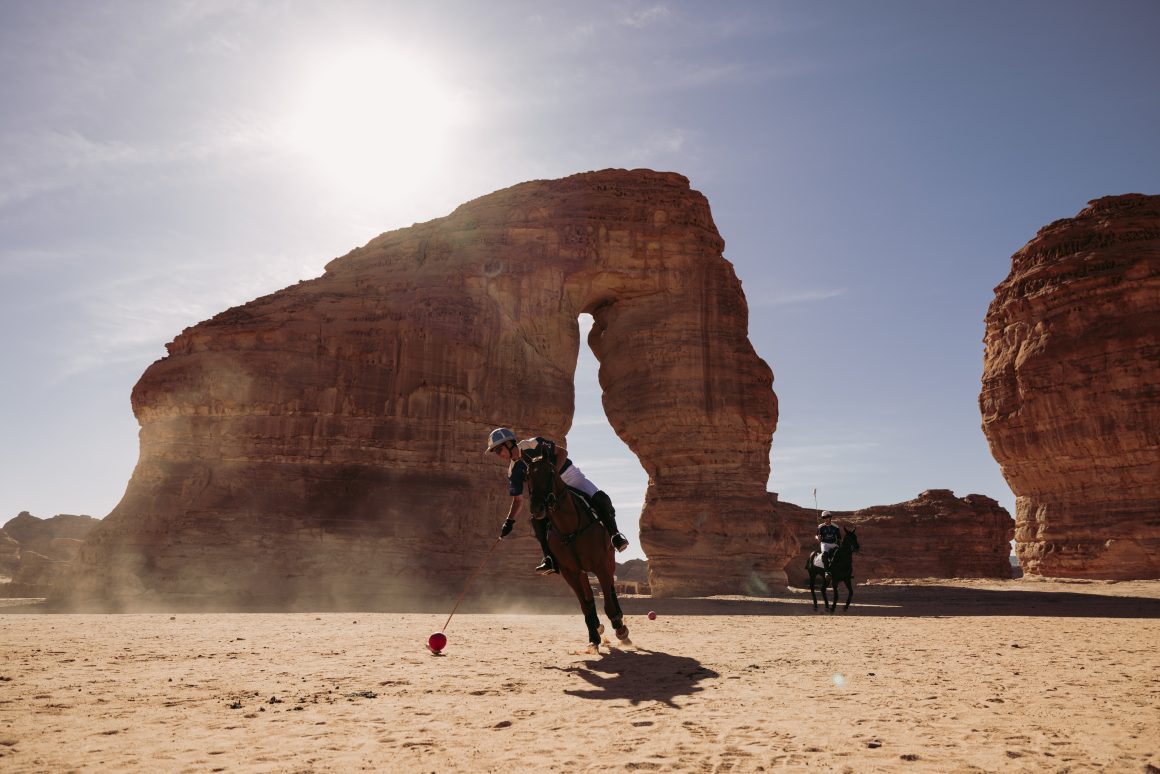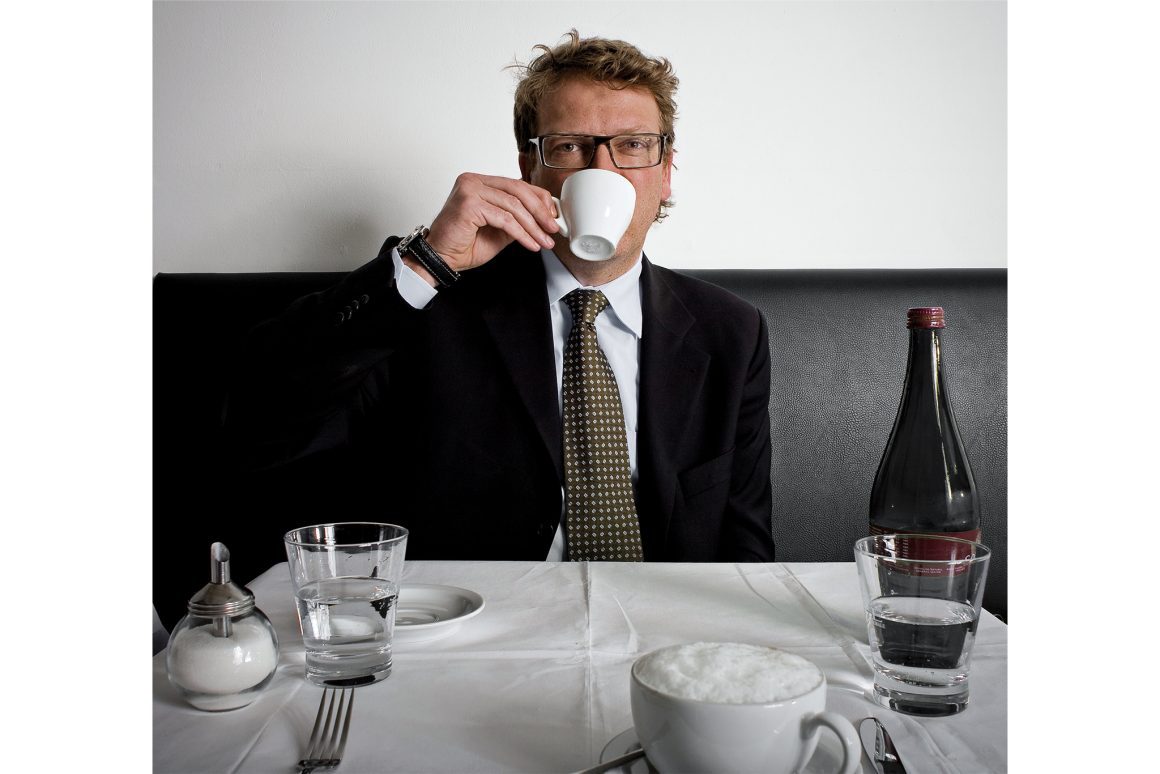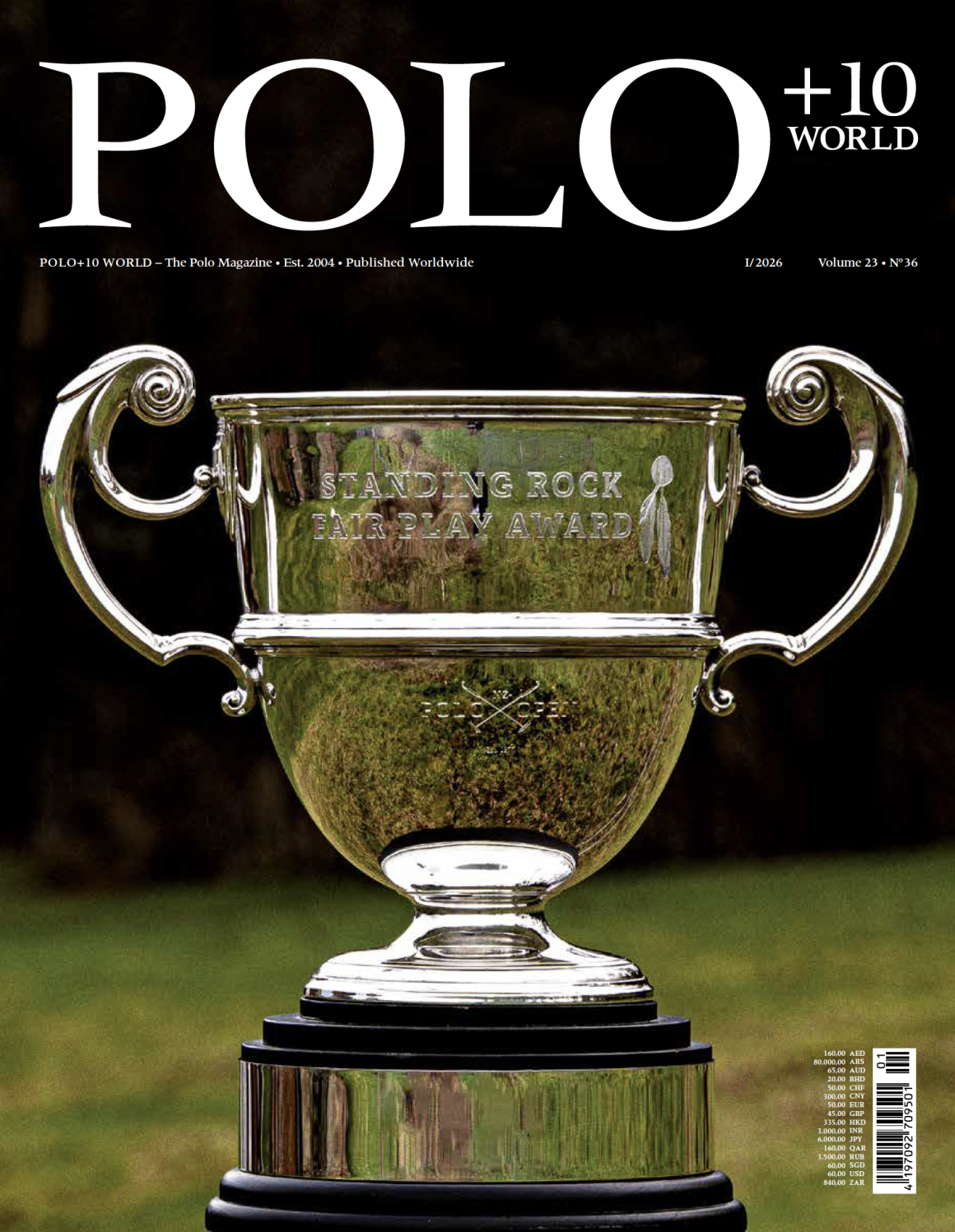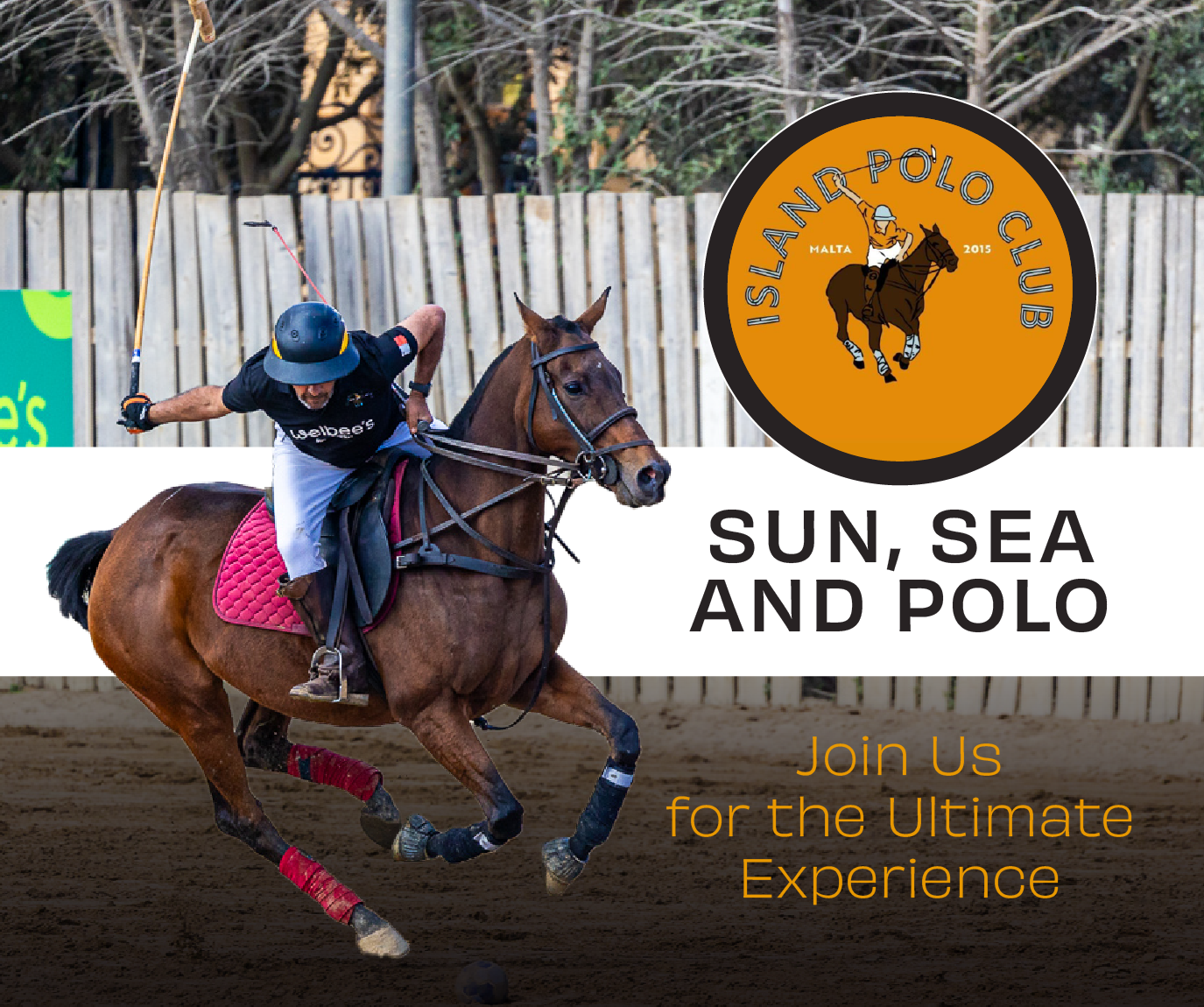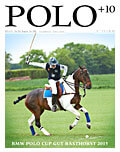POLO+10 volunteer Laura Vele reports on her first visit to a polo tournament and during an interview with Sebastian Schneberger learns why you cannot stop playing polo once you have started.
The weekend started on Saturday under sunny skies and nearly tropical temperatures. Anyone is familiar with the weather in Münster will tell you that this is quite rare. On the sidelines there was a relaxed atmosphere. Instead of a picnic blanket, a group of visitors chose to bring tables and chairs. On the benches and blankets you could find everything you could think about indulging on. Cookies, fruit, sparkling wine – and laughter galore, of course. There even was bull riding, especially for kids’ entertainment. The polo picnic was far from being a stiff event. In the sponsors’ area, the spectators sat on picnic blankets, Fatboy bean bags and bales of straw while watching the polo matches. The audience in this area did not bring their own picnic kits with them, but could choose between all sorts of culinary delicacies. Offering the finest Lafina beef from Uruguay, grilled king prawns, caviar on mashed potatoes or simply fries and hot dogs, the wide range could satisfy any desire.
The visitors of the polo picnic did not only gourmandise, but also enjoyed international polo and exciting matches. As a polo newcomer, one is startled seeing how Eva Brühl (+2) of team Farid’s QualiFighting squeezes her adversary off the track with full use of her physical strength. It was also surprising to learn how many rules and notions there are in the sport of polo. The organisers of Münster made sure that everyone could understand and be informed of the polo rules. On the sidelines the polo newcomers could inform themselves of the rules of the game or variants of conducting techniques.
During the matches the commentators provided the spectators with the background information, for example, that up to 90 percent of all time outs are due to the right of way (line of the ball). This means: The line of the ball is the imaginary path the travelling ball is expected to take. This line may not be crossed by the opponent. A player who is going straight after a ball he has hit, or the first player to swing into the line of a rolling or flying ball, without hampering the others, may not be intercepted by any other player as this could harm the player or the pony. Between the chukkers the band Funny Fellows played some songs and the spectators were invited to the enter the grass to divot stomping aiming to kick and stomp back into place any pieces of turf that have been torn out of the ground during the match.
On Saturday night the players’ party took place under this year’s motto “Dirty Western”. The guests awaited the aforementioned bull riding, which was enjoyed by the kids during the day. Some even accomplished the highest level without being thrown to the ground. The band “Soulsneakers” from Heidelberg played soul and pop classics as well as current hits and made the squaws and cowboys dance.
Feasting, polo and party – these were the keywords of the last weekend at the polo picnic in Münster. Sunday afternoon we had occasion to talk to Sebastian Schneberger, the organiser of the event and player in team Los Nocheros.
POLO+10: Mr. Schneberger, which is your conclusion about the 10th anniversary edition of the polo picnic?
Schneberger: Brilliant! We have been having more visitors than usual and we have been increasing the attendances steadily over the years. Today (Sunday) it is even busier. The spectators are sitting in six to seven “picnic rows” behind one another and all are fully loaded with picnic provisions. It is fun to see them while walking along the rows. Together with my team Los Nocheros we finished up last place, in other words, the defence for the title was definitely backfired. But it still was delightful to play against our friends. That is the advantage of being friends with everyone who is here: lots of laughter.
POLO+10: How many spectators have come this weekend compared to the previous year?
Schneberger: About 2,500 daily, while last year it was nearly 2,000 visitors. I expect there will be nearly 1,000 more than in the past years. We ran a big advertising campaign and distributed many flyers.
POLO+10: When do you begin the preparations for the polo picnic usually? How many people work on the polo picnic?
Schneberger: We slowly begin the preparations half a year before the event. Three months away from it, the tough work starts it really starts in the six previous weeks every day there is something to do. The construction is performed by a main group of ten people, but with all the trimmings of course there are definitely more people who work on the polo picnic. My girlfriend Rhea Gutperle takes care of the preparations. For me it is a lot easier. I communicate all my megalomaniac ideas to her and she makes them real with a more down to earth perspective.
POLO+10: How do you manage with the dismantling after the final games this evening?
Schneberger: Firstly, we focus on the dismantling, and of course, the final numbers that the event left. After that comes our recovery and holidays. Next weekend I will attend the Youpooly tournament in Hamburg, but here in Münster we have closed for the rest of the year.
POLO+10: For how long have you been playing polo and how did you join in?
Schneberger: I have been playing polo for twelve years. Riding had been my lifetime activity, until my cousin Mathieu van Delden, who also participates in this year’s polo picnic, called to tell me that he had a polo coach willing make a polo crash test course for three friends, but all three were unable to participate when Mathieu had already sealed the deal. So I went to Bad Bentheim and did the training with him. After this I stopped playing polo for a short period of time, but attend countless tournaments of the English army together with Mathieu. Not because polo was exciting, but I liked the parties. By chance, during a tournament a player was stuck in a traffic jam and I provisionally stepped in. Along came two, four, and then six horses, and so polo became a part of my life.
POLO+10: I have heard from many players that polo is addictive – would you agree to that?
Schneberger: I think it is pretty difficult to stop playing polo. There is a saying: “There a two ways to stop playing polo: you either die or go broke.” But going broke is a lot more common.
POLO+10: Is Münster a good place to establish the sport of polo?
Schneberger: We have a lot of show jumping here und around Münster there is a huge scene of equestrian sport. Ingrid Klimke for example, Olympic champion in Military, comes from Münster – she has won everything. We also have a lot of classical equestrian sports around here, but polo still is not high in number. The only polo player in Münster is currently sitting here with you on this bale of straw.
The following links lead to our galleries on Facebook. You can also look at them without a Facebook-account.
Polopicknick Münster 2013 part I → click here
Polopicknick Münster 2013 part II → click here


